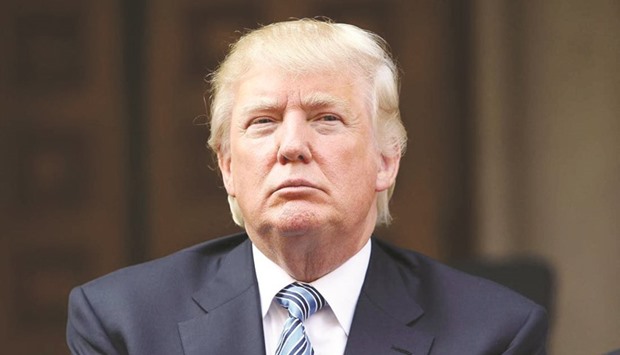A new version of a Trump administration travel ban will not stop Green Card residency holders or travellers already on planes from entering the United States, US Secretary for Homeland Security John Kelly said yesterday.
US President Donald Trump’s initial attempt to clamp down for security reasons on immigration from seven Muslim-majority countries and on refugees snarled to a halt amid a judicial backlash and chaos at airports.
“The president is contemplating releasing a tighter, more streamlined version of the first (order). And I will have opportunity to work (on) a rollout plan, in particular to make sure that there’s no one in a sense caught in the system of moving from overseas to our airports,” Kelly said at the Munich Security Conference.
Asked whether Green Card residency permit holders would be allowed in, Kelly said: “It’s a good assumption and, as far as the visas go, if they’re in motion from some distant land to the United States, when they arrive they will be allowed in.”
He promised “a short phase-in period to make sure that people on the other end don’t get on airplanes. But if they’re on an airplane and inbound, they’ll be allowed to enter the country.”
Trump’s original order, which he said was meant to head off attacks by Islamist militants, barred people from Iran, Iraq, Libya, Somalia, Sudan, Syria and Yemen from entering for 90 days and excluded all refugees for 120 days, except those from Syria, who were banned indefinitely.
The abrupt implementation of the order last month plunged the immigration system into chaos, sparking a wave of criticism from the countries affected, and from Western allies and some of America’s leading corporations, especially technology firms.
Meanwhile, the US Supreme Court will decide three cases in coming months that could help or hinder Trump’s efforts to ramp up border security and accelerate deportations of those in the country illegally.
The three cases, which reached the court before Democratic President Barack Obama left office, all deal broadly with the degree to which non-citizens can assert rights under the US Constitution.
They come at a time when the court is one justice short and divided along ideological lines, with four conservatives and four liberals.
The justices will issue rulings before the end of June against the backdrop of high-profile litigation challenging the lawfulness of Trump’s controversial travel ban.
The most pertinent of the three cases in terms of Republican Trump administration priorities involves whether immigrants in custody for deportation proceedings have the right to a hearing to request their release when their cases are not promptly adjudicated.
The long-running class action litigation, brought by the American Civil Liberties Union (ACLU) on behalf of thousands of immigrants detained for more than six months, includes both immigrants apprehended at the border when seeking illegal entry into the United States and legal permanent residents in deportation proceedings because they were convicted of crimes.
The case also could affect long-term US residents who entered the country illegally and have subsequently been detained.
The Trump administration has said it wants to end the release of immigrants facing deportation and speed up the process for ejecting them from the country.
A decision in the case requiring additional court hearings could have very direct implications for the administration’s plans, said ACLU lawyer Ahilan Arulananthan, especially since immigration courts currently have a backlog of more than 500,000 cases.
The ACLU estimates that up to 8,000 immigrants nationwide at any given time have been held for at least six months.
A US Immigration and Customs Enforcement official was unable to immediately confirm data on length of detention but said that in fiscal year 2016, the average daily count of detainees was just under 35,000.
“If Trump wants to put more people in deportation but does not increase the number of immigration judges, then people are going to have to wait longer and longer to get a hearing,” said Stephen Yale-Loehr, an immigration law professor at Cornell Law School.
The Trump administration has pledged to sharply curtail illegal immigration, with initiatives such as building a wall along the US-Mexican border and hiring thousands of federal agents to police the border and arrest and deport immigrants who live in the United States but entered the country illegally.
Trump has also threatened to withhold federal funding from so-called “sanctuary cities” that offer protections to immigrants who could face deportation.
The other immigration cases to be decided concern whether US government officials can be sued over mistreatment of non-citizens in two separate contexts.
One will decide whether the family of 15-year-old Mexican teenager Sergio Hernandez, who was killed while on Mexican soil by a US agent firing from across the border in Texas, can sue under the US Constitution.
It is a scenario that the lawyers for Hernandez’s family say could become more frequent if the Trump administration acts on its proposal to increase the number of border guards by 5,000, raising the prospect of similar confrontations.

Donald Trump
